- Home
- Kim Newman
An English Ghost Story Page 2
An English Ghost Story Read online
Page 2
Brian Bowker unlatched the front door.
‘You might want to put locks on the exterior doors,’ he said, ‘though Miss Teazle never felt the need.’
Dad was horrified.
‘This isn’t exactly a high-crime area,’ the agent said, ‘but times have changed since the old girl was a young thing. It won’t be a big job to make the house secure.’
Brian Bowker stood aside so they could step into a foyer. A combination of veranda and conservatory, it had a pleasant, damp straw smell. The ceiling was so low Dad banged his head on a dangling light-fixture – which would be the first thing to go. It took moments for Jordan’s eyes to adjust to the green gloom. Plants were all around, some overgrowing their pots, extending tendrils across the stiff, brushy doormat. Something like ivy grew inside the foyer, twining around a wrought-iron boot-scraper, creeping up a trellis. A row of brass hooks was ready for a burden of coats. Several pairs of boots were tumbled together by the door. A bright yellow pair of wellies looked scarcely worn.
‘Miss Teazle’s things are still here,’ said Brian Bowker. ‘Her relatives in Australia want to throw in furniture and bric-a-brac. A lot of charity-shop stuff, but there might be treasures. She was rich, after all. Now, come on through and see this…’
He touched a section of the wall. A pair of doors slid open like secret panels, with a woody scraping sound. Beyond was cool darkness and a windowless hallway. The agent shepherded them inside and along a cramped corridor to another set of doors, which he pushed open.
As one, the family gasped. Brian Bowker chuckled.
Jordan would not have guessed a room in a private home could be so large. It was fully twenty feet high and twice that long. After the murk of the hall, it was filled with warm, wavering sunlight. Opposite the doors, French windows were inset into a panoramic expanse of picture windows. The view was impressive – not just the orchard, but the expanse of moorland. Facing away from the village, the house might have been at the edge of civilisation.
‘Thanks to Dutch elm disease, you can see a long way from here,’ said the estate agent. ‘From the towers, you can see Glastonbury Tor. That’s all safety-glass, by the way. The original panes didn’t come through the hurricane in 1987.’
That night – a few years before her brother was born – was among Jordan’s first memories. Waking up with the windows of the flat rattling, angry elements threatening to blow them in, roaring winds and car alarms. Snuggling with Mum and Dad on their sofa, away from breakable glass. Then the mess on the streets next morning.
The room had a fireplace taller than Dad, several sets of upholstered furniture, a twelve-foot polished oak dining table, many nook-like retreats and hiding places. A Victorian chaise longue, with dark floral pattern cushions. Just the thing for her to be discovered draped across by Rick, transformed into her gentleman caller.
A brass chandelier hung from stout, bare beams; out of use, sconces dusty and clogged with old candle wax. Streetlight-like freestanding lamps were arranged around the space. Faded carpets, Turkish or Arabian, lay like quilt squares on the flagstone floor.
‘This is the oldest room,’ said Brian Bowker. ‘The hearth and floor are fifteenth century. So is one of the walls. The house has been knocked down and rebuilt over and over. The towers are a nineteenth-century addition. An unusual feature. The big windows were first put in by Miss Teazle, after the war. She was born in this house, never lived anywhere else.’
The last owner of the Hollow had been a writer.
‘I remember her from when I was a girl,’ said Mum.
‘The Weezie books when I was little, then the Drearcliff Grange School series. Old-fashioned even then, but we all read them. I see things in this room that were in the stories: that’s the fireplace Weezie hides in when she plays sardines. Louise Teazle must have done that when she was a girl, hidden in there. And written about it later. I expect all writers do that, fill their books with bits of their lives.’
Jordan had heard of Louise Magellan Teazle but never read her. When younger, she had read Alan Garner and C. S. Lewis. Now, she had lost the habit. There was too much else to do.
She imagined hiding from Rick in the fireplace and letting him find her. She was sure he would love this place too, when he saw it.
Brian Bowker showed them every part of the house. The two towers were the most obviously inhabited, connected to the house by the hall and four rather dark, cube-shaped rooms full of fascinating junk. These would need a lot of work to be reclaimed as guest rooms or storerooms. There were two completely fitted bathrooms, and two separate toilets – one outside, in a shed-like structure – which made Tim ecstatic at the thought of ‘a bog for each of us!’ In the West Tower were the kitchen (she saw precisely where her Alessi would look its best), a walk-in larder that was a room in itself, a master bedroom that hadn’t been used since Miss Teazle’s parents’ day, and a maid’s garret which Tim instantly claimed for his own.
The East Tower was smaller. Louise Teazle had used the ground-floor room as a study.
‘Good grief,’ said Dad, ‘that’s an Amstrad.’
An old word processor stood on a desk between an upright manual typewriter and a daisy-wheel printer. Jordan let her fingers linger on the word processor’s keyboard and got a tiny static tingle.
‘You can tell a writer lived here,’ she said.
The walls were covered with bookshelves, and there were three old wooden filing cabinets.
Above the study was the bedroom the writer had slept in all her life. This, Jordan realised with a thrill, would be her room. It contained a canopied single bed, a frail-looking rocking chair by the window, an antique writing desk, a wash-stand with a matching basin and jug, a dressing table with an attached mirror and an odd little chest of drawers. Ancient toys and old-lady things were arranged like a museum exhibit. It should have been sad but somehow wasn’t. Jordan believed Miss Teazle had stayed keen throughout her long life, not letting her childhood dim but never finding memory a trap. The bed had new sheets and a duvet, the colourful cover clashing with the pastel designs of the wallpaper. Something to be fixed.
Brian Bowker took them out through the French windows. Neglected, wild patches had been vegetable and herb gardens. Tiny blue and white flowers grew everywhere, even from the thatch of the roof and between the stones of the paths. Was there a book in the study about which plants were which? If not, she would get one from a library. She wanted to learn about birds and butterflies too. Rick had said to look out for mushrooms, poison ones and druggy ones.
Tim ran wild like a six-year-old, flashing back a few years to the golden age before his current personality had set in. He even swung from the low branches of a tree, as if raised in a jungle by apes. Mum and Dad laughed, relaxed, not worried about traffic or lurking paedophiles. This was what being a kid must have been like in the old days, when the Beatles were pop stars and television was black and white.
They called Tim and were shown the barn. The cider-press turned out to be a vast, complicated contraption with interesting wildlife sprouting from its innards and a wooden tub which still smelled of long-pulped apples.
A workbench was fixed to one wall. Outmoded tools were neatly arranged on hooks above it.
‘Are there power points?’ Dad asked.
The agent pointed them out. ‘Put in when they took out the old generator and hooked the Hollow up to the mains. The place didn’t even have a phone for years.’
‘Sounds heavenly,’ said Mum.
Dad laughed.
‘That’s all changed now,’ Brian Bowker assured them.
‘The utilities are all in order.’
Tim was especially taken with what looked like a child-sized tractor but turned out to be a sit-astride grass-mower.
‘We’ve tried to keep the place trim since Miss Teazle passed away. A lass from the village comes in every couple of weeks to mow the orchard and hack the weeds. This is a very fertile patch. Miss Teazle had a pair of goats to nibb
le the grass, but they’re gone now.’
‘Frisky and Whiskey?’ said Mum. The agent looked baffled. ‘Those were the goats in the Weezie books.’
Dad raised his eyebrows. Mum wasn’t embarrassed.
‘It all comes back,’ she said, tapping her head.
‘All sorts of things are stored away up here.’
‘Anything useful?’
Jordan tensed slightly but Mum laughed. Dad gave her waist a squeeze and kissed her.
The barn had a second storey, reachable via a wooden ladder and a hatch. They all looked up.
‘There isn’t anything up there,’ said the agent. ‘Miss Teazle was quite infirm. She wouldn’t have been able to manage the climb.’
‘I’ll do a recce,’ Tim announced. He swarmed up the ladder, disappeared through the hatch, clattered around in the dark, and poked his head back over the edge.
‘There’s a door,’ he reported, ‘in the wall, leading nowhere.’
She stepped out of the barn and saw what her brother meant. Twenty feet above ground was a wooden door, with a gibbet-like structure above it. The door rattled as Tim shoved it from the inside. It swung open and Tim leaned out over the drop, grinning broadly.
‘That was for lowering bales of hay down into the yard,’ Brian Bowker explained. ‘You might think about keeping it bolted shut to prevent accidents.’
They took the point.
‘Come down, Timbo,’ said Dad. ‘Before you do yourself an injury.’
Dad and the agent were both relieved when Tim vanished inside the barn and reappeared, dusty but unhurt, at ground level.
Brian Bowker knew he had a sale. He was talking as if there was a done deal and the Naremores were moving in a week from Tuesday.
Mum and Dad didn’t contradict him.
They all left the barn, for a last look around.
Jordan felt funny. She was – she realised with a shudder – happy. After all she’d been through these last few years, she was home. A fresh start in a new place. It felt right, in a way she had either forgotten or never known.
Her secret plan was revised. The Hollow changed everything. Rick would understand; he always let her do the forward thinking.
Afternoon sunlight made a green-gold haze about the place, an aura of contentment. Shapes formed and wisped in the light patterns. Jordan imagined they were reluctant to see her go, eager for her return.
She couldn’t wait to tell Rick about the Hollow but stifled an excited impulse to beg Dad for the car phone. The thought of calling her boyfriend now – with Tim and her parents eavesdropping – made her squirm inside. The family had been here less than half an hour and already she knew it was where they would settle.
In the hunchback, on the way to the last viewing, to a perfectly nice house that would have no chance of winning their hearts, Tim kept on about ‘his room’, listing places where his things could be put, and new things he would need. Usually, when he spun methodical fantasies upon impossible premises, he would continue until one or other of the family was forced to shoot him down. This time, they let Tim run on and on. This time, they understood exactly what he meant.
Mum pressed the play button on the in-car cassette player. Music filled the car, ‘Spring Spring Spring’ from Seven Brides for Seven Brothers. Jordan shivered again, not with cold but love.
She looked back, out of the rear window, and kept her eyes on the Hollow, even when only the tip of the taller tower was visible. When they were on the main road, she turned around and felt the need to count heads. All four of them were in the car but it was as if they had left someone vital behind.
* * *
As soon as the family was away from the Hollow, they missed their new home, each in their different way, each feeling at bottom the same thing. But they took the sights, sounds and smells with them, to well up unbidden in their minds as the next few weeks stretched into the next two months and they impatiently went through the business of buying and selling, as if homes could be made with money and contracts.
Besides memories, the family – as a single entity and four discrete individuals – took from the Hollow something else, something subtler and more lasting, something they shared but never got round to talking about. The magic was private and should not be spoken of out loud, for fear that it would evaporate like dew in the sun. It was as if they had exchanged vows with the place, leaving something of themselves behind and taking something of it away.
At long last, after what seemed an age, summer came and the family returned to the Hollow.
Weezie and the
Gloomy Ghost
by
LOUISE MAGELLAN TEAZLE
Illustrations by Mr Kees Van Loon
This book was first published 11 October 1932
by Alder Bough Press
Reprinted fifty-two times
Paperback edition first published 1965
by Kilpartinger & Co. Ltd
Reprinted fourteen times
Magic edition published 1979
by Pyramid Children’s Books Ltd
Reprinted ten times
This edition reset and illustrations
reoriginated 1988, reprinted 1988
Published 1990 by Mythwrhn
an imprint of Real Subscriber Books Ltd
The Pyramid, 112–56 Cardinal Wolsey St, London E14 4DL
and New York, Delhi, Auckland, Cape Town and Toronto
Reprinted 1991 (twice),1992, 1994
Reissued 1997
A CIP catalogue record for this title is available from the British Library
Once, not so long ago and not so far away, there lived a good little girl named Weezie. Really, she was not so little as all that any more and perhaps not so good either. Her Mama and Papa said that since she had shot up so much the summer before she should be called by her proper name, which was not Weezie but something horrid.
When people used her proper name, she would pretend not to hear. She had been pretending for so long now that she really did not hear. She would go on humming to herself and ignoring her parents until they would finally give in and call out, ‘Weezie, my Weeze, please not to tease!’ Then she would look up and come indoors at a run.
Weezie liked to wear her blue pinafore, though its hem was well above her knees and Papa said she looked like a heron in it. She was still having lessons from Miss Emily Ginn, her governess. She would have to go away to a school when the leaves started to fall from the trees.
She lived with her Mama and Papa – and Miss Emily Ginn, Peter the Man, Katie the Cook and the goats Frisky and Whiskey – at Hilltop Heights, a big old house in the countryside far away from the city. Only Weezie knew, for she was clever in a way grown-ups had forgotten, that others lived with them. She knew Hilltop Heights was a Haunted House.
Everyone who ever lived at Hilltop, even when there was just a hill there without a house, had stayed on.
Oldest among the ghosts was Club, a Piltdown Man. He was not very bright and had little forehead to speak of, but was Weezie’s best friend in all the world. His special place was in the hayloft, which had once been his cave. Weezie and Club made drawings together, of the strange animals that had lived in his time and the strange people who lived now. Club was a highly talented artist and would certainly be as wealthy and respected as Mr Van Loon if he were alive today.
The other ghosts were her friends too.
Sidney the Saxon and Guillaume the Norman, who had fought with thick, brittle swords. Goodie the milkmaid and Crispin the Fey, who had eloped together to spite proud Queen Titania and shared a love that was still sung of. Rupert the Cavalier and Noll the Roundhead, who had fought with thin, tempered swords. Adventurous Captain Harry Persimmon, who had sailed the seven seas and had a leg eaten by cannibals and an arm eaten by a shark; and his stay-at-home brother Jarge Percy, who had lived to a hundred and twelve without ever walking beyond sight of Hilltop Heights.
Sometimes, the ghosts played jokes. When a psychical investigator
came from London to look over Hilltop Heights, they perpetrated such fearful pranks that Weezie had to become very grown-up and tell them all off. It was not nice to turn a man’s hat inside out in mid air in front of him, even if he did lisp. When the investigator mentioned ‘ectoplasmic manifestations’ it came out as ‘ectoplaththmic manifeththtationthth’ and half a gallon of spit.
Hilltop Heights was an enchanted place. Every cupboard and carpet had its special qualities. In Weezie’s room was a magic chest of drawers. The top drawer always had the same thing in and the bottom drawer never had the same thing twice and the middle drawer was always a jumble of surprises. Weezie loved surprises.
The ghosts were Weezie’s friends.
One ghost, however, was not: the Gloomy Ghost.
She didn’t know his real name and none of the others did either. He didn’t show himself as he had looked when he was alive but instead lingered about a dreary part of the hill as a thick black cloud or a pool of murky slime. He clung low to the ground and seeped into the house like damp. Whenever the Gloomy Ghost was about, even on the sunniest and happiest of days, it felt like a long, rainy Wednesday afternoon. Weezie thought of him when she had toothache, and imagined his shadow gathering under the eaves when Miss Emily Ginn made her recite the seven times table.
Whenever china was dropped or a toe stubbed, the Gloomy Ghost was there. Whenever jam spoiled or a window broke, the Gloomy Ghost was sensed leaving the scene of the crime. But the worst habit of the Gloomy Ghost was that when he was most up to mischief, he would arrange matters so that Weezie, and not he, would take the blame.
She had lost count of the suppers she had missed and the times she had been sent to her room to learn her lesson. When that happened, the other ghosts would keep her company and endeavour to cheer her up.
They meant well and kept trying to help with her history lessons, but whenever Sidney and Guillaume or Rupert and Noll tried to tell her about the days in which they had lived they got into arguments and forgot about her.

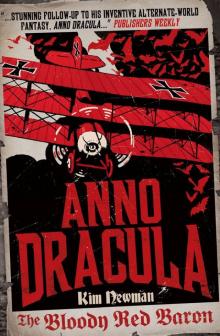 The Bloody Red Baron
The Bloody Red Baron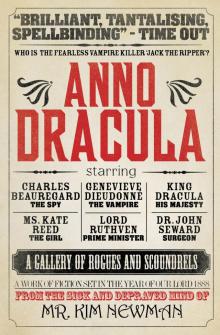 Anno Dracula
Anno Dracula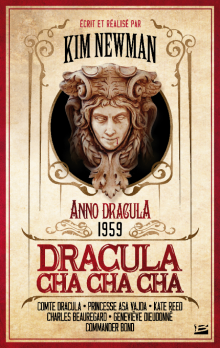 Dracula Cha Cha Cha
Dracula Cha Cha Cha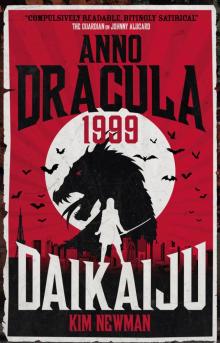 Anno Dracula 1999
Anno Dracula 1999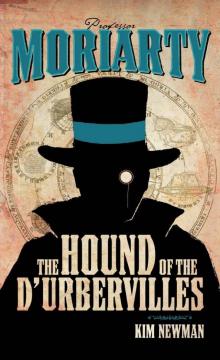 Moriarty: The Hound of the D'Urbervilles
Moriarty: The Hound of the D'Urbervilles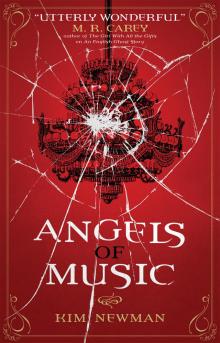 Angels of Music
Angels of Music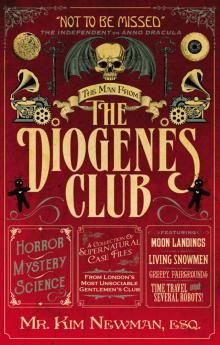 The Man From the Diogenes Club
The Man From the Diogenes Club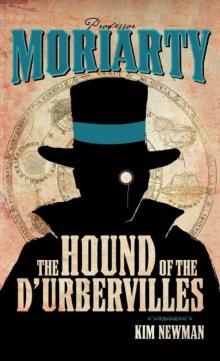 Professor Moriarty: The Hound Of The D’urbervilles
Professor Moriarty: The Hound Of The D’urbervilles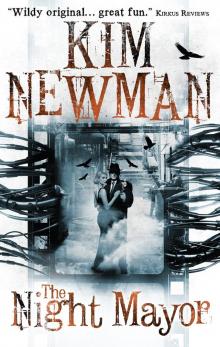 The Night Mayor
The Night Mayor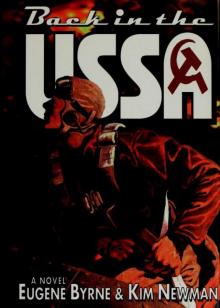 Back in the USSA
Back in the USSA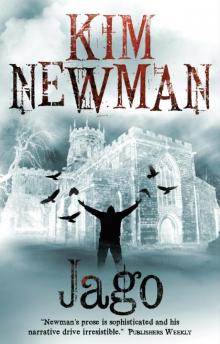 Jago
Jago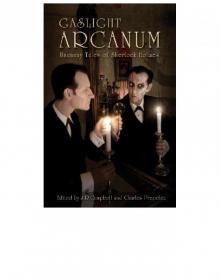 Gaslight Arcanum: Uncanny Tales of Sherlock Holmes
Gaslight Arcanum: Uncanny Tales of Sherlock Holmes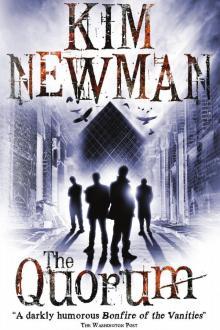 The Quorum
The Quorum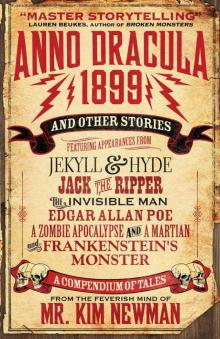 Anno Dracula 1899 and Other Stories
Anno Dracula 1899 and Other Stories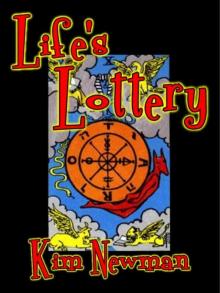 Life's Lottery
Life's Lottery The Secrets of Drearcliff Grange School
The Secrets of Drearcliff Grange School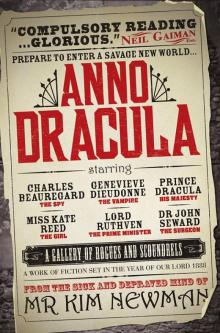 Anno Dracula ad-1
Anno Dracula ad-1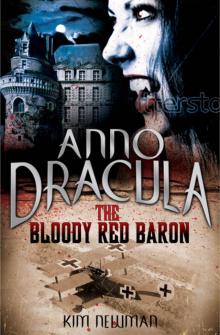 The Bloody Red Baron: 1918 ad-2
The Bloody Red Baron: 1918 ad-2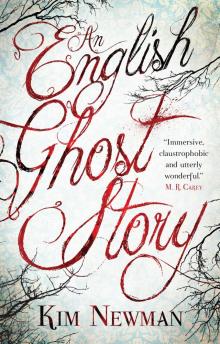 An English Ghost Story
An English Ghost Story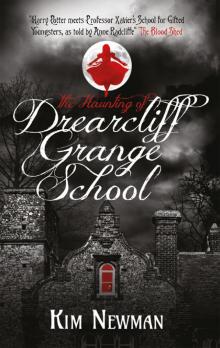 The Haunting of Drearcliff Grange School
The Haunting of Drearcliff Grange School The Other Side of Midnight
The Other Side of Midnight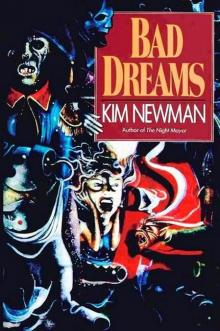 Bad Dreams
Bad Dreams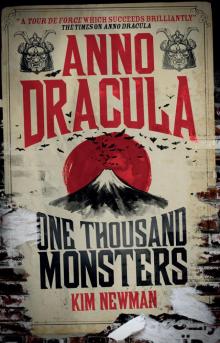 Anno Dracula--One Thousand Monsters
Anno Dracula--One Thousand Monsters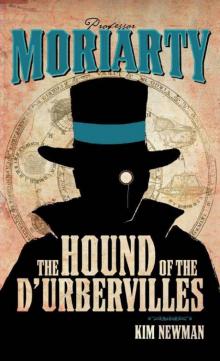 The Hound Of The D’urbervilles
The Hound Of The D’urbervilles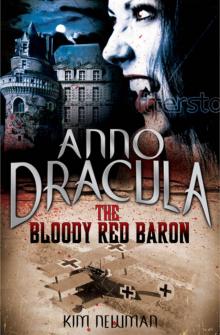 The Bloody Red Baron: Anno Dracula 1918
The Bloody Red Baron: Anno Dracula 1918